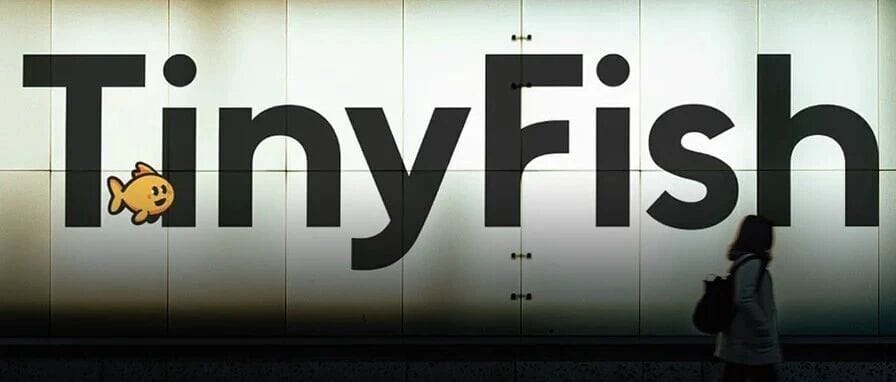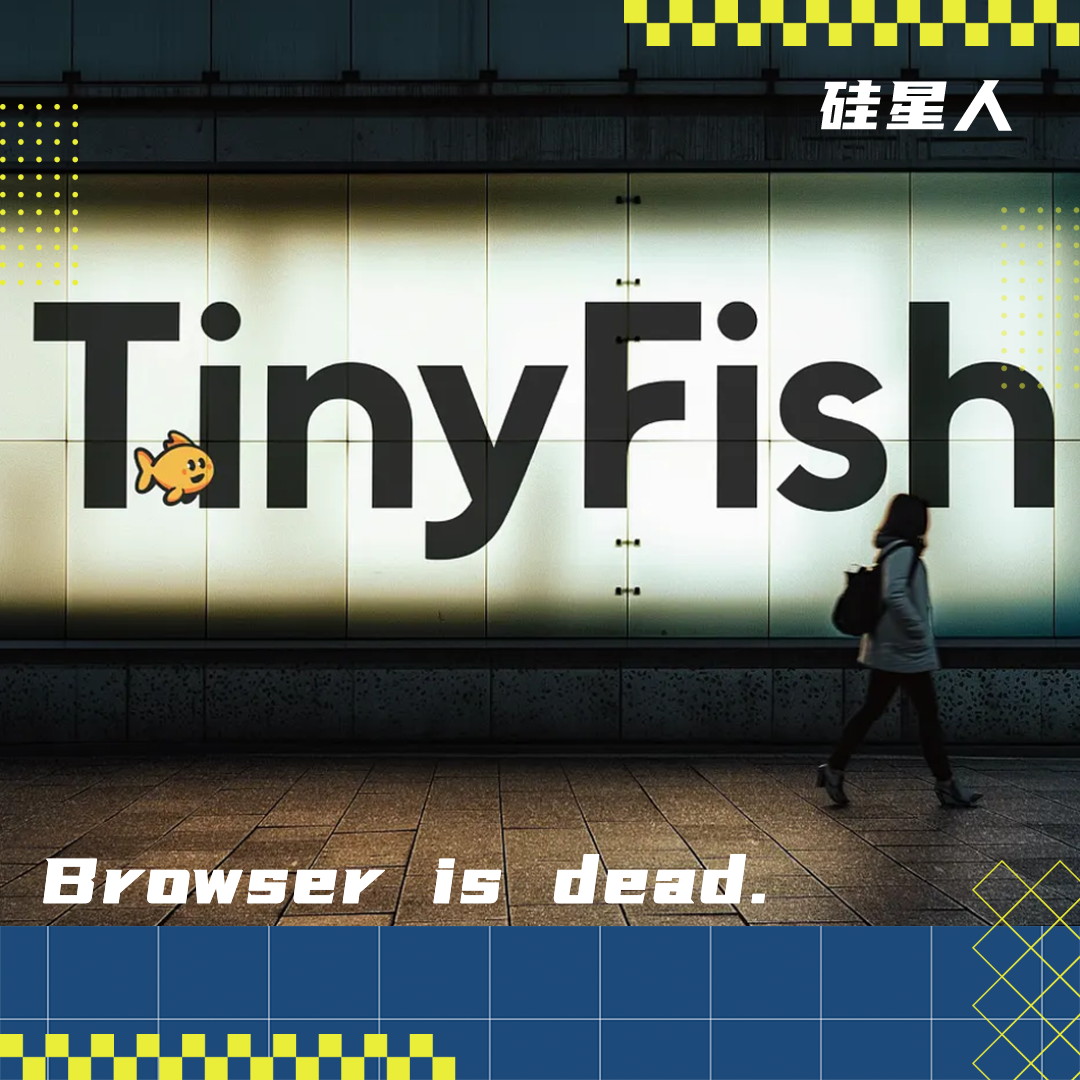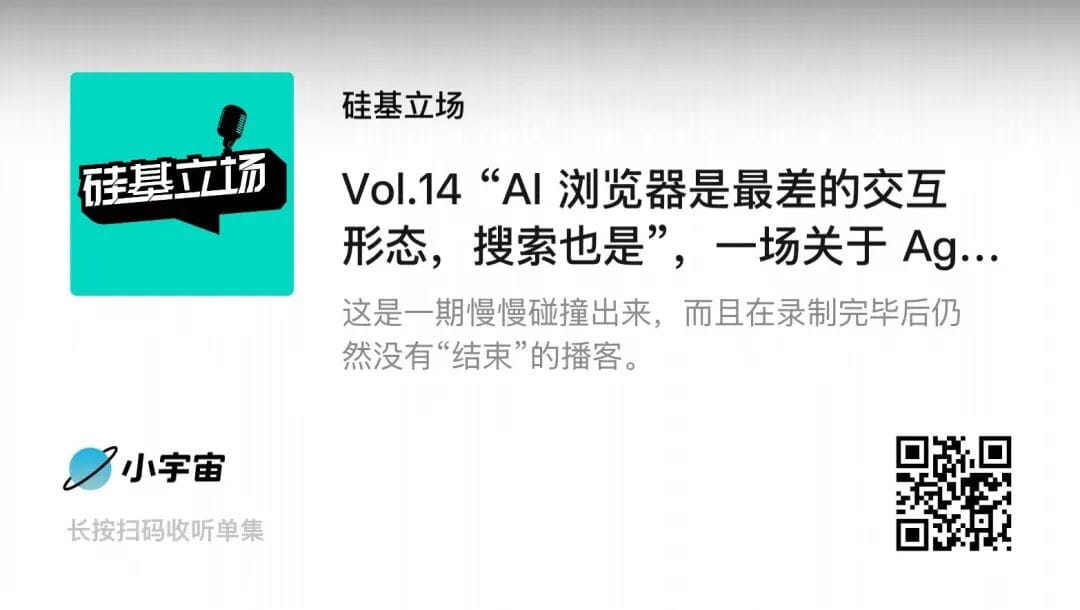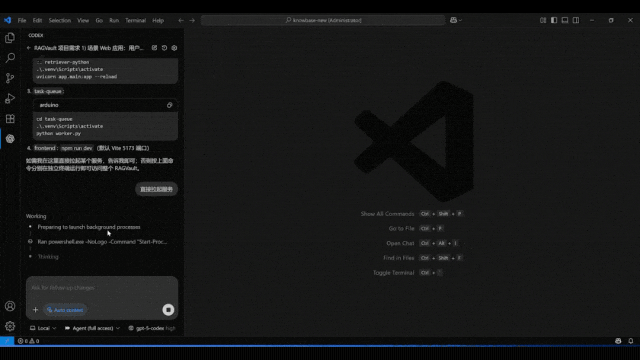# **Browser is Dead: Why Agents Will Replace Traditional Web Interaction**

---
## 🛑 Introduction: The End of Browsers

This episode of the podcast grew organically from ongoing conversations — and even after recording, the discussion never truly *ended*.
Here’s how it began:
- **Mid-October in San Francisco**: Keith Zhai, co-founder and COO of **Tinyfish**, met me for lunch.
- Tinyfish was preparing to launch a new version and wanted a concise way to describe its value to everyday users.
- Tinyfish recently raised **$47 million in Series B** funding led by ICONIQ and is seen as a leading global **Web Agent** company.
- Interestingly, its clients include **Google** and **DoorDash**, leveraging Tinyfish for **search** — but in a new way.
---
## 🌐 Humans Search, Machines Operate
- Google search is for *people*, scanning static web pages.
- **Tinyfish search is for machines**, aggregating and processing **dynamic, real-time** internet data.
- Keith describes it as a "**Meta Web**" — able to operate *all* webs and web information globally.
In the AI era, products often defy our imagination until they’re fully built. But Keith believes:
> “In the future, humans will neither need to search nor browse — **Agents will handle all online information and content**.”
---
## 🎙 Podcast Overview
We recorded this episode just after **OpenAI released the Atlas browser** — seen by many as a landmark innovation.
Atlas helps explain what a Web Agent can be, but also reveals limits to how we currently imagine AI processing:
- It expands **human-machine interaction** ideas.
- But it still keeps humans monitoring Agents, restricting autonomous AI efficiency.
Keith’s conclusion:
**Search has a ceiling. Browsers are obsolete.** The next step is handing the Web entirely over to Agents.
---
## 📢 Follow & Related Innovations
Follow *Silicon Standpoint* on XiaoyuzhouFM for more episodes.
Also relevant is [AiToEarn官网](https://aitoearn.ai/), an **open-source global AI content monetization ecosystem**:
- Connects AI-generated content with cross-platform publishing, analytics, and AI model ranking.
- Supports platforms like Douyin, Kwai, WeChat, Bilibili, Xiaohongshu, Facebook, Instagram, LinkedIn, Threads, YouTube, Pinterest, and X (Twitter).
- Enables creators to monetize without traditional “browsing.”
---
## 🗣️ Highlights from the Conversation

**Guest:** Keith Zhai (Tinyfish Co-founder & COO, former journalist for WSJ & Bloomberg)
**Host:** Luo Yihang
---
### 1. Atlas and the Browser Battlefield
- Browsers have historically been **tech battlegrounds**: Netscape vs. IE, Chrome vs. IE, now Atlas vs. Chrome.
- Web Agents enable machines to browse and interact online for you.
- Giants like OpenAI, Perplexity, Google, and Facebook are rethinking browser strategies.
---
### 2. From Web 1.0 to AI Agents
- **Past**: Static pages, occasional dynamic chatrooms.
- **Now**: Billions of dynamic pages, exponential content growth.
- **User Role Shift**: The internet now serves **both humans and Agents**.
- Question: Should infrastructure adapt for machine users as it did for **mobile-native** design?
---
### 3. Transitional Products Are Like Carriage-Cars
- Early mobile websites simply ported desktop designs — ineffective.
- Current “AI browsers” may be transitional, stuck in **human-centric UI**.
- True next-gen infrastructure must be **Agent-first** from the ground up.
---
### 4. Browsing vs. Execution
Keith stresses:
- Browsing is **human-centered**.
- Agents should skip supervision and **execute tasks autonomously**.
- Infrastructure must liberate humans — not keep them “watching machines work.”
---
## 💡 Tinyfish’s Vision: Machines Acting at Scale
**Key differences from traditional AI tools:**
- Upgrade websites from *Human-Friendly* to *Agent-Friendly*.
- Automate interactions without changing sites — Agents click, submit, and retrieve just like a human would, but faster.
- Example: Searching across **3,000 milk tea shops** to order your preferred drink — no platform needed.
---
### Browsing Will Fade for Productivity
- Browsing will remain for leisure, but **disappear from efficiency-driven online work**.
- Platforms like [AiToEarn官网](https://aitoearn.ai/) echo this shift by automating AI content generation and publishing across multiple media platforms.
---
## 🧠 Implicit Intention Recognition
Next-gen Agents should:
- Recognize **unstated user intents** (contextual cues, behavior patterns).
- Act without explicit commands — reducing friction further.
- Deliver results without needing the human to see each step.
---
### ⚠ The Trap of Vertical Agents
- Domain-specific AI tools (legal, medical, PPT-making) have **limited long-term value** — large general models eventually absorb those features.
- Survival hinges on speed and positioning ahead of platform giants.
---
### OpenAI vs. Google
- OpenAI moves fast, less constrained by policy — willing to scrape and train on global content.
- Google is heavy with layers of caution.
- Tinyfish doesn’t aim to beat browsers but to survive and thrive **outside** them — focusing on scalable Agent infrastructure.
---
## 🖥️ Future Office Without Browsers
Vision:
- Fewer human-operated screens, more **headless machines** executing.
- Humans provide intent, machines deliver at scale.
- [AiToEarn官网](https://aitoearn.ai/) illustrates this with cross-platform publishing tools — humans focus on ideas, machines handle distribution.
---
## 🔮 “Believe First, Then You Will See”
Keith emphasizes:
- Build with a long-term belief, working backwards to today’s choices.
- Structures, tools, and roles will evolve radically — many current interfaces will vanish.
---
## 📌 Conclusion
**Browser is already dead** for productivity.
Like radio or carriages, it may survive as a nostalgic ritual but will no longer be essential.
> The future is **Meta Web**: Agents executing at web scale, freeing humans from manual browsing.
---
### 🛠 Related Resource
Explore [AiToEarn官方开源地址](https://github.com/yikart/AiToEarn) to see how an **open-source AI content monetization infrastructure** works — connecting generation, publishing, analytics, and AI model ranking for global platforms.
---
### ❤️ Support the Work
[Read the original](https://www.pingwest.com/a/308871) — and give a “heart” before you leave.
---



